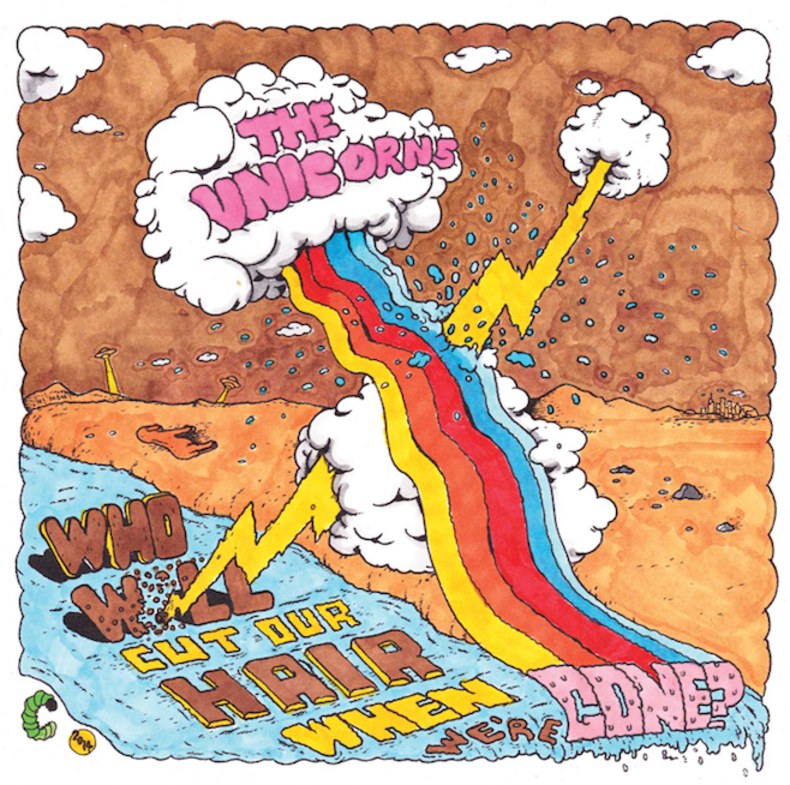The Montreal cult band continues to fascinate us nearly 15 years after their one and only album
Once upon a time, during the magical early to mid 2000s, Montreal experienced its very own musical renaissance. To many fans and critics, it was reminiscent of the surge in Seattle grunge music, which ruled the airwaves during the early to mid 1990s. The hometown of Leonard Cohen had become the new mecca of cool, especially among indie rock enthusiasts.
By 2005, Spin Magazine dubbed Montreal “the next big thing” and The New York Times fawned over the city’s “explosive music scene.” Among the most notable bands were The Dears, The Stills, Sam Roberts Band, Stars and, of course, Arcade Fire—the band that would come to rule the indie rock music world and win the Grammy for Album of the Year in 2011.
However, one Montreal-based band may seem like a mere footnote of this wondrous musical awakening, having left the party as quickly as they came. They released their one and only LP in October 2003 and, by December 2004, were no more. They were The Unicorns.
Formed in 2000, the band consisted of Nick “Neil Diamonds” Thorburn (lead vocals, guitar), Alden “Ginger” Penner (vocals, bass, keys) and Jamie “J’aime Tambeur” Thompson (drums). When describing their debut album, Who Will Cut Our Hair When We’re Gone?, music critics often referred to them as “goofy,” “messy” and “whimsical.” While valid, these descriptions downplayed the band’s remarkable ability to write insanely catchy hooks and melodies that resist the standard verse/chorus/verse structure. The jangly indie-pop trio had an experimental streak, but they still evoked a familiar feeling. Above all, their tracks were truly an extension of their unique, hilarious personalities.
Few songs about dying and the fear of it are as fun as the LP’s opening track, “I Don’t Wanna Die.” The album also includes a few eerily beautiful, synth-heavy 80s songs that would fit seamlessly into a Stranger Things episode, notably “Tuff Ghost” and “Inoculate the Innocuous.”
“Sea Ghost” kicks off with perhaps the greatest recorder solo ever—it’s a standout track that encapsulates the chemistry between Thorburn and Penner. “Jellybones” is an example of the band’s ability to mix and mash different tempos and genres on a single track. “The Clap” stands out as the heaviest song on the album, illustrating how The Unicorns were willing—and able—to be much darker stylistically. “Child Star” is the most melancholy track on the album, a reminder that, despite their cartoonish antics and lyrics, this was a band capable of creating beautifully layered tracks.
“I Was Born (A Unicorn)” begins with a charming guitar riff accompanied by the simple, steady and heavy beating of a snare drum. This leads to a chaotic chorus of instruments and an amusing exchange between Thorburn and Penner, singing “we’re The Unicorns / we’re more than horses.” They literally whine their way to the end of the song.
The album closes out with the anthemic “Ready To Die,” which foreshadowed the band’s eventual breakup a year later, announced by a simple message on their website: “THE UNICORNS ARE DEAD, (R.I.P.).”
With lyrics that hover between morbidly curious and fantastically silly, this group’s manic energy and the sheer undeniable catchiness of their tunes have made The Unicorns a cult band. While many of their indie rock contemporaries have reached dizzying heights or terrifying lows, The Unicorns came and went like a shooting star, without ever disappointing us. Now that’s a unicorn indeed.
The Unicorns – Who Will Cut
Our Hair When We’re Gone?
(Alien8 Recordings, 2003)
“I Don’t Wanna Die”
“Tuff Ghost”
“Ghost Mountain”
“Sea Ghost”
“Jellybones”
“The Clap”
“Child Star”
“Let’s Get Known”
“I Was Born (A Unicorn)”
“Tuff Luff”
“Inoculate the Innocuous”
“Les Os”
“Ready to Die”
